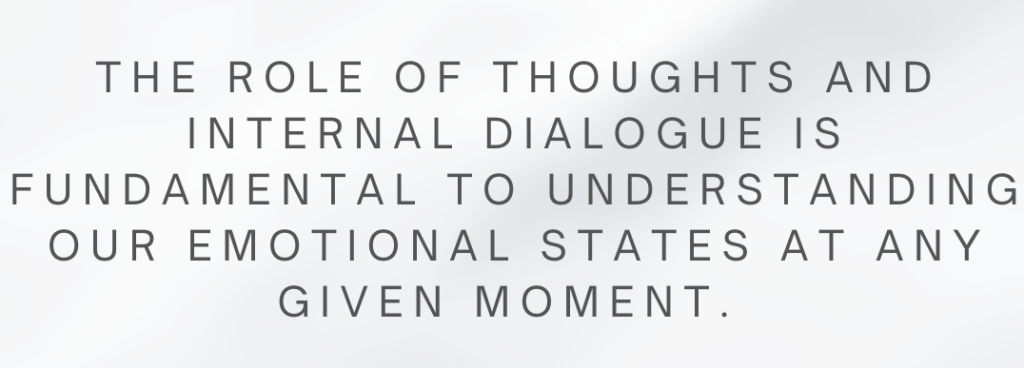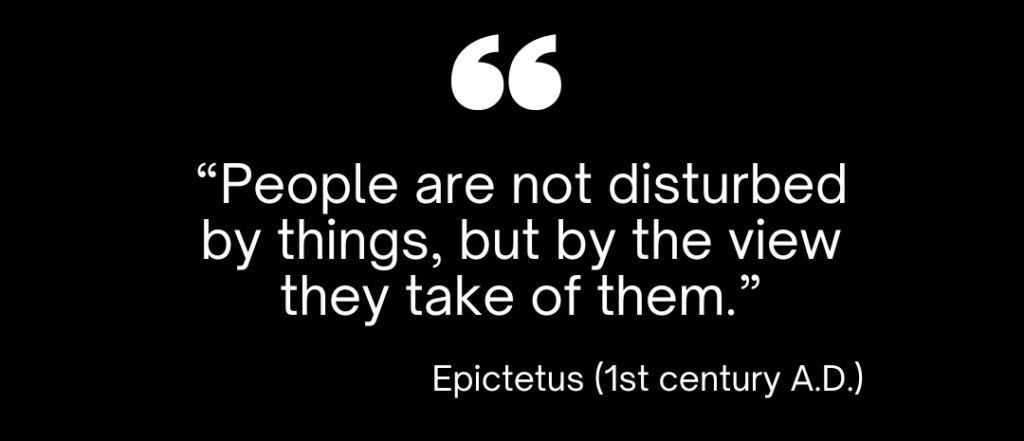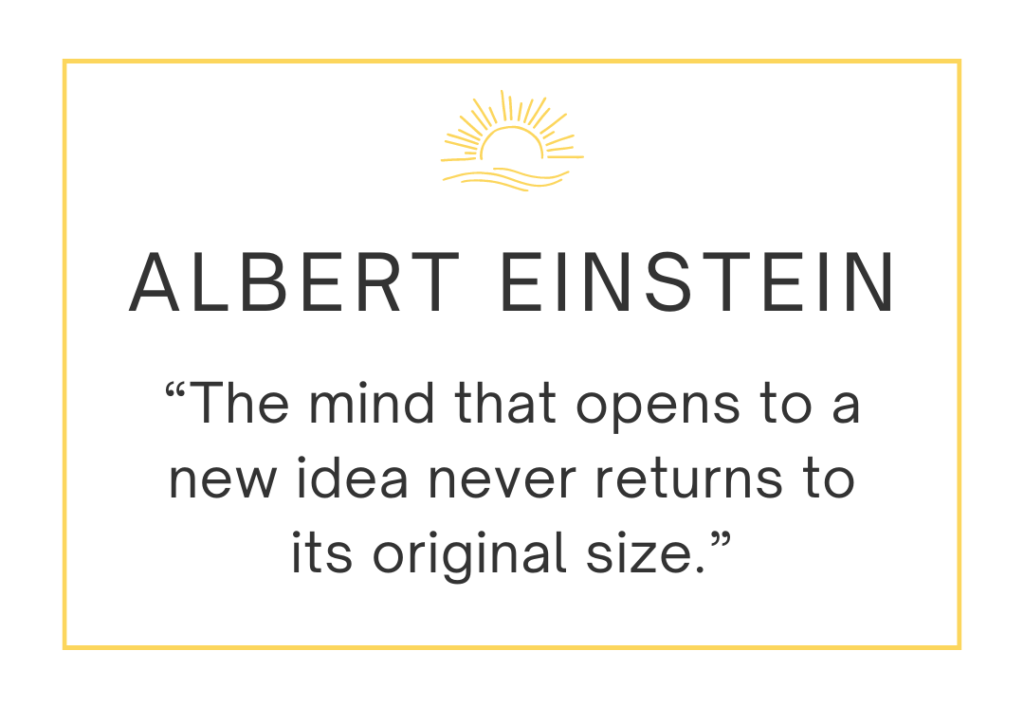Cognitive Distortions
Cognitive Distortions
In this article, we’re going to take a look at some mechanisms that affect all of us. They play a very important role in our lives and often go unnoticed. In fact, you might say that they are the perpetrators of the perfect crime.

However, before we define cognitive distortions, I want to share part of a testimony from a patient at a psychologist’s office:
“Every time I get depressed, I feel like I’ve been hit by a sudden cosmic shock. I start to see things differently. The change can happen in less than an hour. My thoughts turn negative and pessimistic.When I think about my past, I feel convinced that nothing I’ve ever done is worth anything.
All of the happy times seem like an illusion. My achievements seem about as real as the set of a Western movie. I end up convincing myself that my true personality is worthless and meaningless. It’s impossible to get any work done because I am paralyzed by doubt. I can’t stay still, the suffering is unbearable.”
This is a patient suffering from symptoms of depression. He could have also talked about symptoms of anxiety, but that’s not the point. The important thing here is that these symptoms are the product of a situation, an event, or something that happened. Or not.
We tend to say that we feel a certain way because a particular “thing” happened. It’s as if something carries us from one point to another and we don’t have any say in the matter.
That’s because we tend to skip over our thoughts and the things we tell ourselves after the incident.
The role of thoughts and internal dialogue is fundamental to understanding our emotional states at any given moment. Our thought patterns have just as much influence (or more) on how we feel as the event itself.

To use a cooking metaphor, the way we chew the food influences the tastes just as much as the composition of the food itself.
Our Thoughts Lead to Our Emotions
The negative thoughts that invade our minds are the true cause of our emotions. The opposite is also true. If we want to manage our emotions well, then our thoughts are the jumping-off point.
I’d like to propose a little exercise. Every time you feel depressed about something, try to identify the thought you have at that precise moment. Given that thoughts create our moods, we can change our mood if we change our thoughts.
Some people will be skeptical about all of this. That’s because their negative thought patterns have become such a part of their lives that they’re on auto-pilot.
Many thoughts fleetingly and automatically pass through our minds, and we aren’t aware of them.They are as obvious and natural to us as holding a fork.
It’s a neurological fact that before we can experience something, our mind processes it and gives it meaning. It could be consciously, sub-consciously, or unconsciously.In general, thoughts feed on our internal dialogue. As the age-old saying goes:

Differences Between Rational and Irrational Thought
Rational means that which is true, logical, pragmatic, and based on reality. (That is the definition we will use in this article, at least.) So, rational thought helps people achieve their goals and fulfill their purpose (Ellis, 1979a).
Irrational thought, on the other hand, is all that which is false, illogical, not based on reality, and makes it difficult for people to achieve their goals and purpose in life. (Again, that is the definition we will use in this article.) Irrational things interfere with our life and happiness (Ellis, 1976).
Albert Ellis was a psychologist and forefather of cognitive therapy. He identified a series of basic irrational ideas that most people had. Let’s see some examples:
- The adult human being has an extreme need for the love and approval of practically every meaningful person in his or her community.
- The fact that things don’t go as one would like is terrible and catastrophic.
- Misfortune is caused by external forces. People have limited or no ability to control their distress and difficulties.
- Certain people are vile, evil, and despicable. Society should seriously blame and punish them for their evil ways.
There are many more irrational ideas, but we won’t get into all of them. Our focus will be on cognitive distortions.

What Are Cognitive Distortions?
Our culture bombards us with irrational thoughts. We find irrational thoughts in songs, movies, and TV shows. We incorporate, or already have incorporated, these thoughts into our personal belief systems.
I’m not trying to say that we should stop watching TV or listening to music. Nor am I suggesting we distance ourselves distance ourselves from society.
But we should question what we see and hear. It’s important to put a question mark around these ideas before we add them to our beliefs and values.

Cognitive distortions, or inaccurate thoughts, are distorted ideas about the world around us. They tend to be automatic and it’s difficult for us to notice we have them.
That’s why seeing a psychologist can be so helpful. Once we identify them, the next step is to exchange the distortions for more “realistic” or adaptive thoughts.
Roughly speaking, cognitive distortions are responsible for our sadness, anxiety, anger, etc. As we identify and change them, we will feel better.
Types of Cognitive Distortions
All or Nothing Thinking
With this type of distortion, we perceive everything in extremes. There is no happy medium. This is a typical “all or nothing” or “black and white” type of thought pattern.
We think that things can be good or bad. We are either perfect or a complete failure. For example: “If I’m not successful at everything I do, I am completely useless.”
Overgeneralization
This is when we draw general conclusions from specific events. In other words, if something bad happened one time, we should expect it to happen over and over again.
For example, if a girl rejects a guy, he might overgeneralize by thinking all women will reject him in the future.
Filtering
This is when a person picks a negative detail from a situation and focuses on it exclusively.Through that filter, he has a negative view of the whole situation.
For example, a wife who always brings up how unorganized her husband is without mentioning all his good traits. She doesn’t talk about how he is responsible, hard-working, affectionate, etc.
Mind Reading
This is about assuming you know what other people’s reasons or intentions are. You take your interpretation as the only valid one when in reality there are many possibilities. You believe you can guess exactly what others are thinking, but you are wrong most of the time.
That means that you preemptively draw conclusions. For example, “she’s not paying attention to me, I’m sure she’s not interested in what I’m saying.” This is one of the most common cognitive distortions that come up in relationships.
Personalization
A tendency to relate something external to yourself. In other words,you think that everything revolves around you. This causes you to twist the facts.
Another type of personalization is when we compare ourselves with others. For example, if someone makes a general comment about people being irresponsible, we think they directed the comment towards us. A person who is particularly sensitive to personalization thinks they are the target of constant insinuation.
Emotional Reasoning
At the heart of this distortion is the belief that what the person feels must be true.We take our own emotions as proof of truth, though we lack objective information. For example “If I feel like a loser, it’s because I am a loser.”
Jumping to Conclusions
Jumping to conclusions without having all the information that we need.We end up with an arbitrary and unfounded conclusion. For example, “I’m sure that my family won’t like all this food I’m making.”
Magnification and Minimization
Magnification happens when we focus on our mistakes, fears, or imperfections and exaggerate their importance. “Oh my God, I’ve made a mistake. This is awful! It’s horrible!”
Minimization happens when we minimize our qualities. “I’m not good enough or smart enough for math. Getting a 90 on the exam doesn’t prove anything.”

Shoulds
With this distortion, the person behaves according to inflexible rules. These rules should dictate everyone’s relationship.The words that indicate the presence of this distortion are “should” or “have to.”
The person doesn’t just judge others by these rules, but themselves as well. For example “Other people should understand me, they don’t have to treat me like that,” or “you shouldn’t act like that…”
Labels
This is another type of overgeneralization. Instead of identifying the mistake we’ve made, we give ourselves a negative label, like“I’m a loser.” When we don’t like someone else’s behavior, we label them: “He’s a damned liar.”
The Best Way to Fight Irrational Thoughts:
- Realize when we feel bad.
- Identify the thoughts in our mind at the moment.
- See if they correspond to any of the cognitive distortions we’ve mentioned.
- Replace those thoughts with healthy thoughts. Modify our language and internal dialogue.
We’ve all been victims of these cognitive distortions at some point or another. Or maybe we are victims currently. The better we understand them and how they affect us, the better we can control their effect and use them to our benefit.

